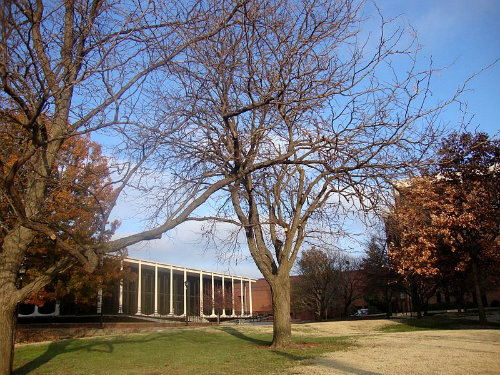With four major construction projects underway, space is tight at Wichita State University (WSU), especially when trying to find parking. The overall amount of parking spaces has decreased, but not for the disabled, who must be allocated a certain number of spots by law. Grady Landrum, director of the campus office of disability services, says that the university actually counts more handicapped parking than the law requires, though the spots may have been temporarily relocated due to construction.
But according to Nick Taylor, who has been with the university for fifteen years as a student, teacher, and assistant tennis coach, the reduction in overall parking has caused drivers to be more competitive and potentially increased abuse of the disability parking hangtags or licenses by the perfectly healthy.
Landrum, who has been with WSU for almost twenty-three years, concurs: “That happens on our campus, I would say, on a regular basis. Every year it seems to become more and more of an issue, whether there’s construction or not.”
“I, myself, have seen people get out of their car, put two gym bags onto their back, and run into the Haskett Center,” he continues.
Landrum’s eyes may be lying to him, though. There are so-called invisible disabilities, such as renal failure or chronic dizziness, that don’t signal a handicap the way that a cane or wheelchair, which Taylor uses, will do.
Taylor believes that campus police need to begin routinely asking drivers parked in handicapped spots for their ID, since motorists with disability tags are required by law to carry an identification card with them at all times.
“If you truly need a handicap spot, you should not be offended that they’re asking you for that identification card,” Taylor says. “I don’t care if you’re in a wheelchair or you have a hidden disability, the whole reason that’s being enforced is to try to help you.”
Currently, however, campus police lack enforcement procedures during school hours. To mitigate some of the parking issues caused by the construction projects, the university instead offers tips on its parking website, including a list of low-usage lots and parking-occupancy levels based on class times. It also reminds students of its free campus shuttle service, which runs from 7am to 10pm on weekdays and has recently added new stops—Fairmount Towers, Devlin Hall, and Wheatshocker Apartments—to its route. A stop for Dueksen Fine Arts Center in the southwest quadrant of campus will be added mid-semester.
